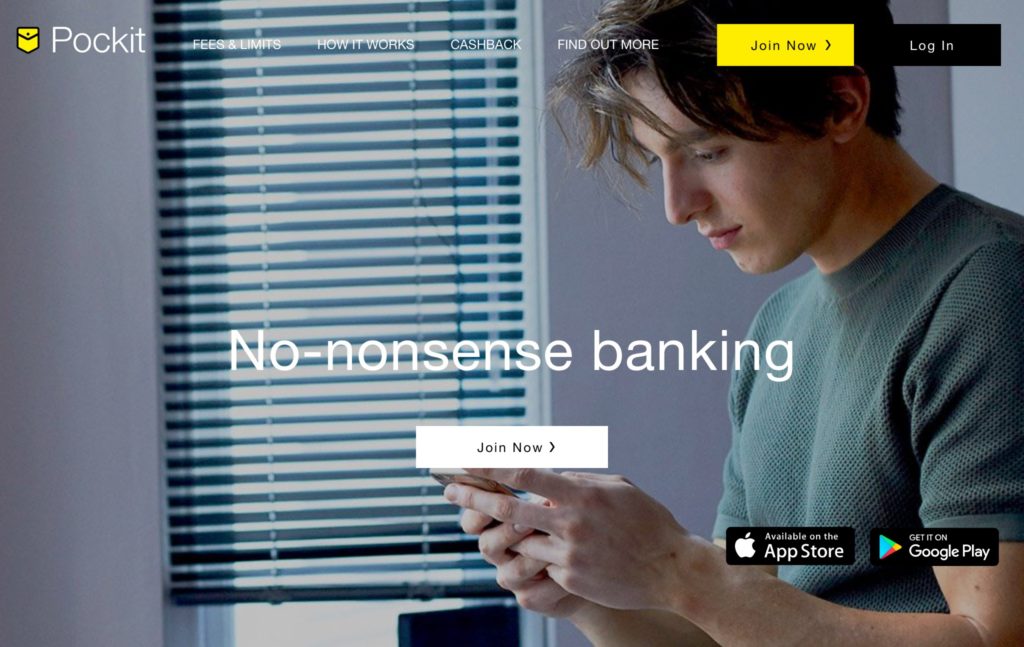Virraj Jatania of Pockit

Next up we have Virraj Jatania, CEO of Pockit – building the world’s most inclusive bank!
Pockit will be taking part in the Innovate Finance Global Summit in April 2017
Our questions are in bold.
– – – – –
Who are you and what’s your background?
I’m a second-generation entrepreneur, who has been successfully building Pockit, the world’s most inclusive bank, since 2013.
I hail from a family of entrepreneurs, who were among the thousands of Asians to be expelled from Uganda by President Idi Amin in 1972. Forced to leave their property behind them, my family started again from scratch in Nigeria, going on to build a portfolio of personal care products businesses over the next thirty years.
My family and I moved around continuously, and it was while growing up in Nigeria, followed by pre-boom Dubai, Yeltsin-era Russia and India that I repeatedly witnessed the inefficiencies of cash-based economies.

Graduating from University College of London in Business Management, I co-founded Pockit in 2013 to address the issue of financial exclusion and cash inefficiency in the UK using technology. For an audience all too familiar with being short-changed by traditional banks, Pockit is a modern-day, fair alternative.
What is your job title and what are your general responsibilities?
My role as CEO & Co-Founder at Pockit involves setting the strategic vision for Pockit, managing key relationships with partners, developing our product and building an awesome team!
Can you give us an overview of your business?
Pockit are building the world’s most inclusive bank – a new front door that’s open to all, especially those shut out or short-changed by traditional high street banks.
A Pockit account takes just two minutes to open and comes with an online account, contactless MasterCard, and mobile app. There are no credit checks, just a simple, online form, and a one-off payment of 99p.
Account-holders can have their salary or benefits paid in via bank transfer, or with cash at 28,000 PayPoint locations across the UK, as well as by debit card.
Using Pockit in the UK today is either free or costs just 99p. No hidden charges. No complicated jargon. Just straight-talking, no-nonsense banking.
Pockit is already meeting the everyday banking needs of over 100,000 customers, almost twice the number served by its fintech peers – Tandem, Atom and Monzo – combined. Unlike its peers, which largely target millennials, Pockit is built on the premise that financial products and services should be for everyone.
Tell us how you are funded.
Pockit has so far raised £6m from investors including the Jatania family, Concentric Ventures, payments entrepreneur Harold Mechelynck, renowned investor Jon Moulton, Mothercare CEO Mark Newton-Jones, and legendary former Manchester United manager Sir Alex Ferguson.
Why did you start the company? To solve what problems?
Having previously lived in largely cash-based economies, I discovered that financial exclusion is an entrenched Western problem too. In the UK today, it’s estimated that at least 4 million people are without a bank account or struggle with restricted access to banking services. That comes at a cost: people without bank accounts find it much harder to pay bills or shop online for cheaper products, and cannot access the lower tariffs offered by utility and other companies to those who pay by Direct Debit – costing a family an average of £1,300 a year. (Source: British Banking Association.)
I founded Pockit driven by a deep conviction that financial exclusion both exacerbates poverty and inhibits social mobility. I believe that financial exclusion is one of the least discussed, yet most pervasive social problems of our age.

Who are your target customers? What’s your revenue model?
Pockit’s target customer fits the following two profiles;
The Unbanked: those unable to open a bank account and usually managing their money in cash. Pockit is the key financial product for them. The money they do not keep in cash would naturally end up in their Pockit account.
The Underbanked: those that have a bank account, but the relationship with their providers is strained because, for example, they keep hitting their overdraft limits. A good portion of their financial lives are managed through Pockit.
Callum
Callum, 57, from East London, spent 20 years serving in the armed forces. Like many ex-serviceman, upon leaving the army, he found himself struck by a series of personal and financial difficulties. A divorce, culminating in a county court judgement, saw him financially blacklisted and eventually made homeless.
Callum relies on his civil pension, along with the occasional helping hand from friends and family, to get by. His credit score is poor and his bank has only permitted him an account without a Debit Card. Concerned about constantly carrying cash when out with friends and unable to make purchases online, Callum turned to Pockit.
“You can’t take out more than what you have. You can keep an eye on it all the time, which I do, and I’m looking to get my universal credit paid onto it very soon.”
Today, Callum is back on his feet and living in sheltered accommodation. He uses Pockit to pay bills, shop online, and intends to have his wages paid in when his new job working on a film set begins. He feels Pockit has restored some normality and dignity to his financial life, far removed from the stigma he felt when dealing with his bank.
Pockit’s revenue model works of the basis that customers pay a small fee of 99p for the functions that allow them to do everything that someone with a bank account does – load with cash (at 28,000 PayPoint locations), withdraw cash at an ATM, make faster payments out and setup Direct Debits to pay bills. Pockit is also introducing remittances this year, which will allow customers to send money abroad at good rates.
If you had a magic wand, what one thing would you change in the banking and/or FinTech sector?
I’d make KYC requirements a lot more straight forward because a large proportion of customers are left out of the mainstream financial services system for unacceptable reasons – they can’t afford to have a drivers’ license or Passport, for example.
What is your message for the larger players in the Finance industry?
We can be complimentary to each other so it makes a lot of sense for us to partner up as opposed to thinking we are going to take each other out of business. We owe it to the people we serve and the problems we are trying to address.
What phone are you carrying and why?
iPhone 7 Plus; it allows me to keep working whilst I am on the move and not in the office, plus the new Portrait mode is pretty cool.
Where do you get your industry news from?
Business Insider and TechCrunch.
Can you list 3 people you rate from the FinTech sector that we should be following on Twitter?
Aneesh Varma, @AneeshVarma, Founder of Aire – a fresh new approach to credit scoring. Taavet Hinrikus, @taavet, CEO & Co-founder of Transferwise. Anna Irrera, @annairrera, Fintech correspondent for Reuters.
Can you suggest the name of an Angel Investor or VC that might be interested in being profiled?
Denis Shafranik, founding partner at Concentric (VC Fund).
What’s the best FinTech product or service you’ve seen recently?
RobinHood – incredible execution for stock trading, can’t wait for it to come to the UK. eToro had the chance to do what they have done, but RobinHood’s product is superior on every level.
Finally, let’s talk predictions. What trends do you think are going to define the next few years in the FinTech sector?
Insurance services are going to see a major change to the financial services sector. You are starting to see interesting businesses like Trov getting traction.
Blockchain is going to revolutionise the way financial services work. It is going to take time but that doesn’t mean it won’t happen. It will hugely reduce the cost of transacting and provide an indisputable ledger.
Artificial Intelligence will increasingly change the way we manage our finances. The smart use of data will deliver the most personalised finance services experience and this will be due to the evolvement of AI.
– – – – –
Thanks to Virraj for his answers today. You can find out more about Pockit on their website, twitter and Facebook.
If you would like to receive email updates whenever we publish, sign up to our Newsletter. You can unsubscribe at any time and we will never use your email for anything else.
If you’ve any suggestions for hot FinTech companies (startup, or established ventures) that we should be profiling, or have an opinion piece to offer, or a FinTech related event you’d like to tell us about, have a look here for more details.





